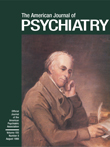Drs. Riemann and Berger Reply
TO THE EDITOR: We would like to thank Dr. Smeraldi and his colleagues for commenting on our article. They raise some important questions relating to our data.
They ask whether total sleep deprivation and other sleep-wake manipulations trigger remissions from the depressive episode or cause only transient mood fluctuations. According to our knowledge, our clinical experience, and the literature (1), total sleep deprivation itself only very rarely leads to a full remission from major depression. The main purpose of our study had been to confirm findings from our earlier pilot study (2) that the positive effects of total sleep deprivation were preserved by a succeeding phase advance of the sleep period lasting for 7 days. We have to mention that our previous study did not include further psychopathological measurements beyond that time period. In addition, the unmedicated patients who participated and responded well to our sleep-wake manipulation all were given antidepressant medication after termination of the study, in order to prevent relapses. We considered this necessary for ethical reasons because we were unsure how long-lasting the effects of our therapy might be. In order to properly answer the issue raised by Dr. Smeraldi and his colleagues, it would be necessary to conduct a longitudinal study of unmedicated patients and to monitor their clinical outcomes after the end of the study.
We cannot exclude the possibilities hypothesized by Dr. Smeraldi and his colleagues 1) that our sleep-wake manipulation triggered a sustained response in the amitriptyline nonresponders and 2) that differences between medicated and unmedicated patients might only have been revealed later during the course of the episode. The latter possibility seems rather unlikely, however, since the length of the stay in the hospital after the study did not differ between the two groups of patients.
In our data set, we did not find a superiority of total sleep deprivation combined with phase advance among bipolar I patients as compared to unipolar patients.
In a new study (unpublished data) of 40 depressed patients who responded to total sleep deprivation and were afterward subjected to either phase advance or phase delay of the sleep period, polysomnographic recordings were performed during the whole course of the study. Contrary to our expectations, even among the responders to the procedure, REM latency decreased and REM percentage increased at the end of the study when the clinical effect was most pronounced. This finding raises interesting speculations about the REM sleep hypothesis (3) of depression. Because we are still in the process of analyzing and interpreting these unexpected data, it would be premature to draw definite conclusions concerning relationships between changes in sleep and psychopathological outcome.
1 Wu JC, Bunney WE: The biological basis of an antidepressant response to sleep deprivation and relapse: review and hypothesis. Am J Psychiatry 1990; 147:14–21Link, Google Scholar
2 Vollman J, Berger M: Sleep deprivation with consecutive sleep phase advance therapy in patients with major depression: a pilot study. Biol Psychiatry 1993; 33:54–57Crossref, Medline, Google Scholar
3 Berger M, Riemann D: REM sleep in depression—an overview. J Sleep Res 1993; 2:211–223Crossref, Medline, Google Scholar



